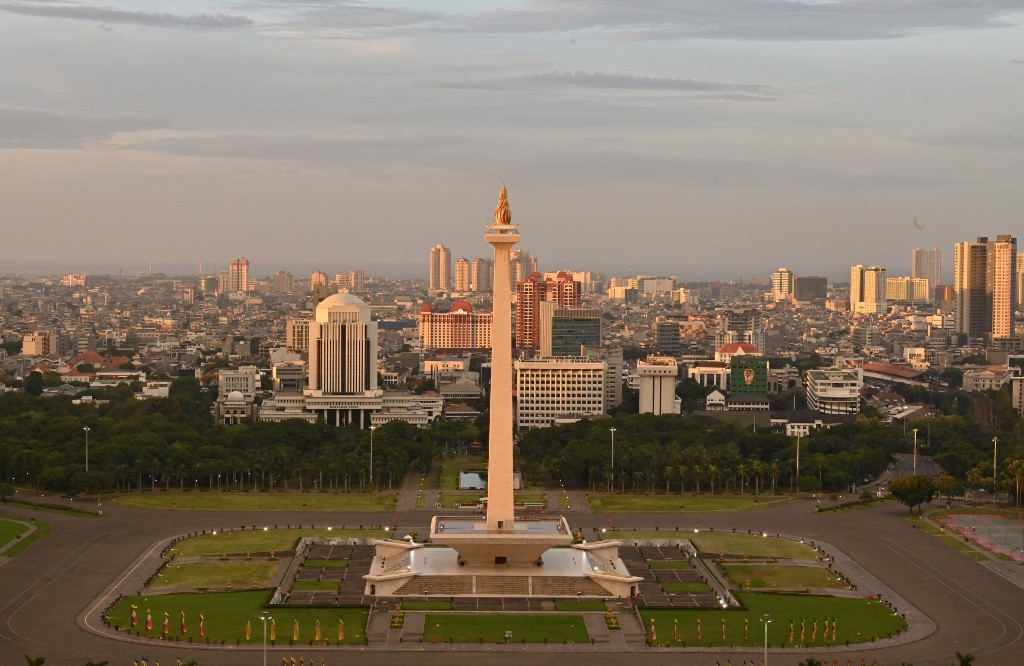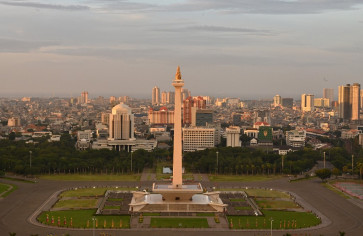Popular Reads
Top Results
Can't find what you're looking for?
View all search resultsPopular Reads
Top Results
Can't find what you're looking for?
View all search resultsSustainability blueprint for Jakarta and its suburbs
If Jakarta and its satellite cities continue on the current path of haphazard, uncoordinated and reckless urbanization, this highly populated megapolis will become progressively more unsustainable.
Change text size
Gift Premium Articles
to Anyone
A
Sustainability Diagnostic is similar to an X-Ray of a healthcare patient. The truth of the underlying disease is evident and if a lasting cure is to be found it cannot be sugar-coated or unnecessarily argued against. The results of a Sustainability Diagnostic of Jakarta and its satellite cities point to a worrying truth that if the current path of haphazard, uncoordinated and reckless urbanization continues, this highly populated megapolis will become progressively unsustainable.
This article will the main causes of the real and present crisis and the “bitter pill” solutions that must be adopted to ensure an optimum living and operating environment for citizens, institutions and businesses.
Collectively, Jakarta and the major satellite cities of Bogor, Depok, Tangerang and Bekasi contribute around 19 percent of Indonesia’s gross domestic product (GDP). They also account for a substantial population of around 31 million, or roughly 11 percent of the nation’s total population, and 20 percent of its urban population. Jakarta is one of the world’s storied cities and it is the seat of political, economic and institutional power in Indonesia. It hosts many universities, hospitals, embassies, the stock exchange, head offices of domestic, multinational companies and banks apart from the millions of micro, small and medium enterprises (MSMEs). Since independence, it has been the main driver of wealth creation for Indonesia which cannot progress without securing the long-term survival of its ibu kota (capital city).
Without Jakarta’s survival and well-being, Indonesia cannot achieve its aspirations of consistent growth, shared prosperity, the realization of demographic dividends and emergence out of the “middle-income trap”. Yet quite inexplicably and inexcusably Jakarta is experiencing a state of abandonment, which is a terrible state of being whether inflicted by employers, family, friends or policymakers. Specifically in the case of Greater Jakarta a Sustainability Blueprint has been developed, debated, socialized and is being holistically implemented. While dozens of seminars and study tours have taken place and some initiatives have been announced, in totality these are seen to be inadequate and disjointed given the scale and urgency of the issues. The region’s Sustainability Diagnostic highlights six major issues that need urgent attention by all stakeholders.
First, the complex geography of the area exacerbated by excessive and unchecked urbanization has made it highly vulnerable to the adverse impacts of climate change. Specifically, these include rising sea levels, coastal erosion, erratic rainfall patterns and prolonged periods of flooding. By some estimates, more than a third of Jakarta is already below sea level and classified as high risk.
Second, based on topography and soil conditions, cities have a finite load-bearing capacity that needs to be scientifically assessed and respected by urban planners, builders and regulators. With close to 5,000 large complexes already developed, apart from the millions of housing units, heavy infrastructure and many other projects already licensed, the load-bearing capacity of the city has long been busted. Annual sinking rates of between 10 and 28 centimeters have been recorded in different parts of the city.
Third, natural water flows and levels in Greater Jakarta have been seriously hampered by irresponsible human actions. The 13 key rivers in the area have seen their courses altered and blocked by construction on river beds, dying mangroves and the nearly 8000 tonnes of waste generated per day that is yet to be fully and efficiently managed. The hundreds of thousands of borewells that have been dug to meet drinking water and household needs have depleted groundwater levels significantly.



















